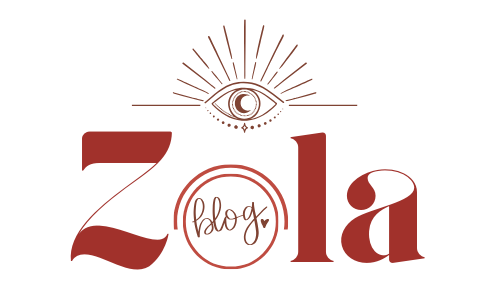Effective Communication Skills for Career Success
Master effective communication skills for career success. Learn key strategies to improve workplace interactions and achieve your goals

Effective communication skills are crucial for career success in today’s competitive job market. Whether you’re just starting your career or looking to advance to higher positions, mastering effective communication skills for career success can significantly impact your professional relationships, team productivity, and overall career trajectory. In this comprehensive guide, we will explore the importance of effective communication, key elements to focus on, strategies to improve, and how to overcome common barriers. Let’s dive in and unlock the potential of effective communication for your career success.
Why Effective Communication Skills Matter
Enhancing Professional Relationships
Building strong professional relationships is fundamental to career success. Effective communication fosters trust, understanding, and collaboration among colleagues, clients, and stakeholders. When you communicate clearly and empathetically, you create an environment where others feel valued and respected, leading to stronger and more productive relationships.
Increasing Team Productivity
In any workplace, teamwork is essential for achieving goals. Effective communication ensures that team members are on the same page, understand their roles, and can collaborate efficiently. By conveying information clearly and listening actively, you can prevent misunderstandings, reduce conflicts, and enhance overall team productivity.
Facilitating Career Advancement
Your ability to communicate effectively can open doors to new opportunities and career advancement. Whether it’s presenting your ideas confidently, negotiating with stakeholders, or networking with industry professionals, strong communication skills can set you apart from your peers and position you for leadership roles.
Key Elements of Effective Communication
Active Listening
Active listening is the cornerstone of effective communication. It involves fully concentrating on the speaker, understanding their message, responding thoughtfully, and remembering what was said. By practicing active listening, you show respect and appreciation for the speaker’s perspective, which fosters better understanding and collaboration.
Clear and Concise Messaging
Being able to convey your message clearly and concisely is vital in the workplace. Avoid jargon and overly complex language. Instead, focus on delivering your points in a straightforward manner that is easy for others to understand. This helps prevent miscommunication and ensures that your message is received as intended.
Non-Verbal Communication
Non-verbal cues, such as body language, facial expressions, and eye contact, play a significant role in communication. Being aware of your non-verbal signals and interpreting others’ can enhance your ability to connect and communicate effectively. Positive body language, such as nodding and maintaining eye contact, can reinforce your verbal messages and build rapport.
Strategies to Improve Communication Skills
Practice Active Listening
To become a better listener, practice active listening techniques such as paraphrasing, summarizing, and asking clarifying questions. This not only shows that you are engaged but also helps you better understand and remember the information being shared.
Develop Empathy
Empathy involves understanding and sharing the feelings of others. By putting yourself in others’ shoes, you can better understand their perspectives and respond more compassionately. This strengthens your connections and helps you navigate difficult conversations with sensitivity.
Use Feedback Effectively
Feedback is a valuable tool for personal and professional growth. When giving feedback, be specific, constructive, and supportive. When receiving feedback, listen openly, ask for clarification if needed, and use it as an opportunity to improve your skills and performance.
Overcoming Communication Barriers
Cultural Differences
Cultural differences can sometimes lead to misunderstandings in communication. Being aware of and respectful towards different cultural norms and practices can help bridge gaps and foster more inclusive and effective communication.
Language Barriers
In a diverse workplace, language barriers can pose challenges. To overcome this, use simple language, avoid idioms, and encourage the use of translation tools or services when necessary. Additionally, patience and understanding go a long way in facilitating effective communication.
Technological Challenges
With the rise of remote work, technological challenges have become more prevalent. Ensure you are familiar with the communication tools being used, and always have a backup plan in case of technical difficulties. Clear and concise written communication is especially important in virtual settings.
Communication Skills in Different Professional Scenarios
One-on-One Conversations
In one-on-one conversations, focus on active listening and empathy. Maintain eye contact, show genuine interest, and respond thoughtfully. This builds trust and makes the other person feel valued.
Team Meetings
In team meetings, ensure everyone has a chance to speak and contribute. Summarize key points, assign action items, and encourage open dialogue. Effective facilitation helps keep the meeting on track and ensures productive outcomes.
Public Speaking
Public speaking requires confidence and clarity. Prepare thoroughly, practice your delivery, and engage with your audience through eye contact and interactive elements. Effective public speaking can enhance your credibility and influence in the workplace.
Resources for Enhancing Communication Skills
Online Courses
Numerous online platforms offer courses on communication skills. Websites like Coursera, Udemy, and LinkedIn Learning provide comprehensive modules on various aspects of communication, from active listening to public speaking.
Books and Articles
There are countless books and articles on effective communication. Some recommended reads include “Crucial Conversations” by Kerry Patterson, “Talk Like TED” by Carmine Gallo, and “How to Win Friends and Influence People” by Dale Carnegie.
Workshops and Seminars
Attending workshops and seminars can provide hands-on experience and direct feedback from experts. Look for local or virtual events that focus on communication skills in professional settings.
Mastering effective communication skills is essential for career success. By enhancing your professional relationships, increasing team productivity, and positioning yourself for career advancement, you can unlock new opportunities and achieve your professional goals. Remember to practice active listening, develop empathy, and use feedback effectively. Overcome communication barriers by being aware of cultural differences, language barriers, and technological challenges. With the right strategies and resources, you can continuously improve your communication skills and thrive in your career.
If you found this article helpful, you may also want to read our piece on Effective Networking Strategies for Career Growth. It provides valuable insights on how to build and leverage professional networks to advance your career.
What communication skills do you find most challenging in your career? Share your experiences and tips in the comments below. Don’t forget to subscribe to our newsletter for more professional development articles and resources.
Frequently Asked Questions (FAQ)
Q: What are effective communication skills for career success? A: Effective communication skills for career success include active listening, clear and concise messaging, and understanding non-verbal cues. These skills help in building professional relationships, increasing team productivity, and facilitating career advancement.
Q: How can I improve my communication skills? A: You can improve your communication skills by practicing active listening, developing empathy, and using feedback effectively. Additionally, taking online courses, reading books, and attending workshops can be very beneficial.
Q: Why is active listening important in communication? A: Active listening is important because it helps you fully understand the speaker’s message, respond thoughtfully, and remember what was said. This fosters better understanding and collaboration in the workplace.
Q: How do I overcome cultural differences in communication? A: To overcome cultural differences, be aware of and respectful towards different cultural norms and practices. This can help bridge gaps and foster more inclusive and effective communication.
Q: What strategies can enhance communication in team meetings? A: In team meetings, ensure everyone has a chance to speak and contribute. Summarize key points, assign action items, and encourage open dialogue to keep the meeting on track and ensure productive outcomes.
Q: How can effective communication skills facilitate career advancement? A: Effective communication skills can set you apart from your peers by enabling you to present ideas confidently, negotiate with stakeholders, and network with industry professionals. This can open doors to new opportunities and career advancement.
Q: What resources are available for enhancing communication skills? A: Numerous resources are available, including online courses on platforms like Coursera and Udemy, books such as “Crucial Conversations” and “How to Win Friends and Influence People,” and workshops or seminars focusing on professional communication skills.




